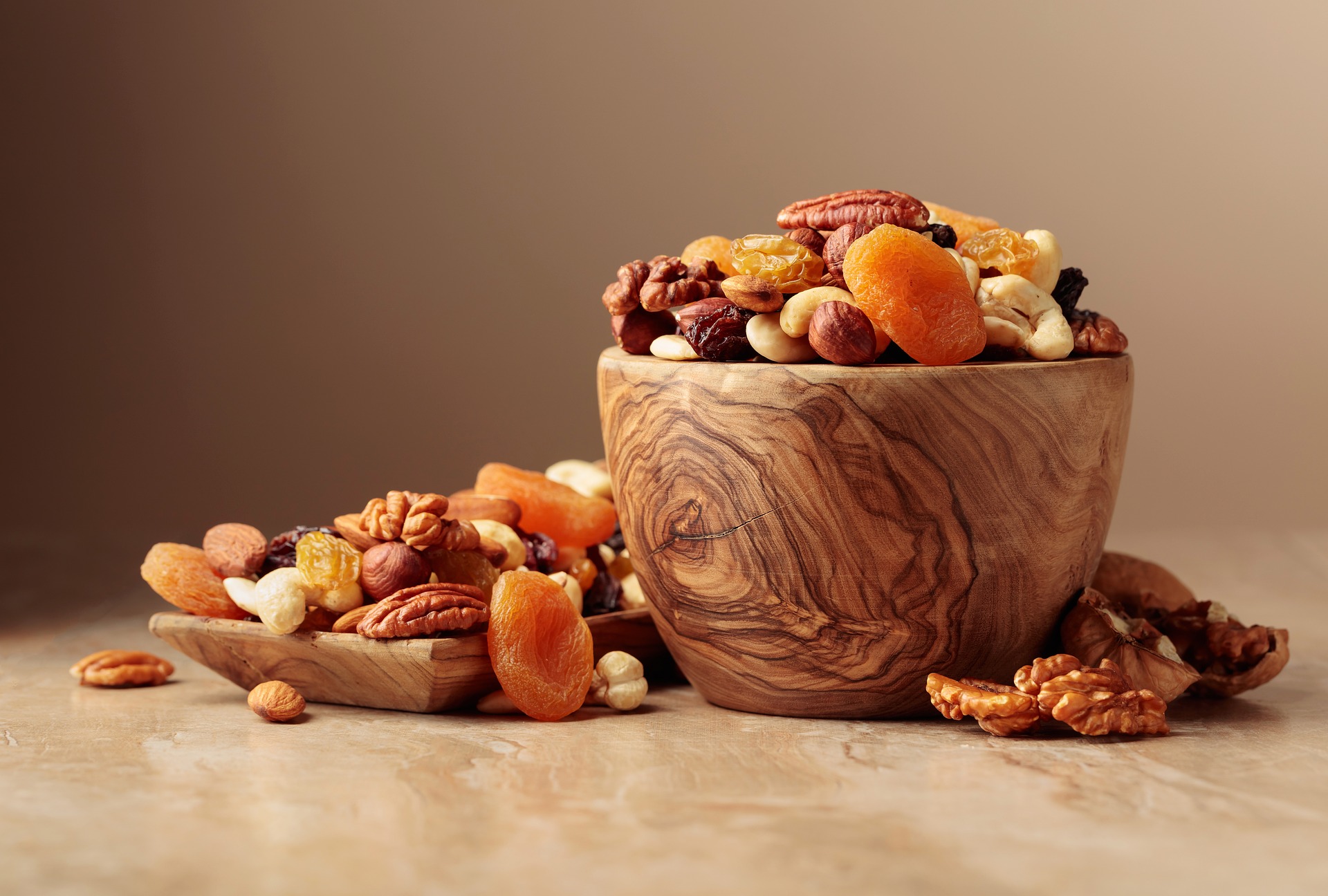
Health Benefits of Onion, Garlic, Oregano, and Rosemary
These common Mediterranean herbs and spices are not only flavorful but also packed with numerous health benefits. Incorporating them into your diet can boost your overall well-being, thanks to their powerful antioxidants, vitamins, and minerals.
1. Onion
Onions are rich in vitamins (especially Vitamin C), minerals, and antioxidants. Here are some of their health benefits:
- Boosts Immune Health: Onions contain Vitamin C, which helps in boosting the immune system and fighting off infections.
- Anti-inflammatory Properties: The sulfur compounds in onions have anti-inflammatory effects, which may help in reducing inflammation in the body.
- Supports Heart Health: Onions are known to help lower blood pressure and reduce the risk of heart disease due to their antioxidant content, particularly quercetin.
For more detailed information on the health benefits of onions, visit Healthline – Onions.
2. Garlic
Garlic is known for its powerful medicinal properties, often hailed as a natural remedy for various conditions. Key benefits include:
- Supports Heart Health: Garlic has been shown to lower blood pressure and cholesterol, reducing the risk of cardiovascular diseases.
- Boosts Immunity: The allicin compound in garlic has antibacterial, antiviral, and antifungal properties, which can help strengthen the immune system.
- Anti-Cancer Properties: Some studies suggest that garlic may play a role in preventing certain types of cancers due to its high sulfur content.
Learn more about the health benefits of garlic by visiting WebMD – Garlic.
3. Oregano
Oregano is an herb commonly used in Mediterranean cuisine, and it offers several health benefits:
- Rich in Antioxidants: Oregano is loaded with antioxidants that protect the body from harmful free radicals.
- Anti-inflammatory Effects: It helps reduce inflammation in the body, particularly in the digestive system.
- Boosts Digestive Health: Oregano has been traditionally used to support digestion by promoting the secretion of bile.
For more information on the health benefits of oregano, check out Medical News Today – Oregano.
4. Rosemary
Rosemary is a fragrant herb often used in cooking, but it also has potent health benefits:
Improves Digestion
: Rosemary has been traditionally used to relieve indigestion and bloating.
Cognitive Health
: Rosemary is known to have brain-boosting properties, potentially improving memory and cognitive function.
Anti-inflammatory and Antioxidant Effects
: Like oregano, rosemary contains antioxidants and anti-inflammatory compounds that help protect the body from oxidative stress and inflammation.
For additional information on the health benefits of rosemary, visit Healthline – Rosemary.
These spices and herbs are not only great for flavoring dishes but are also powerful tools in promoting health. By incorporating them into your daily meals, you can enjoy both the taste and the health benefits they offer.
Vegetables are incredibly nutritious and an essential part of a balanced diet. Here are some of the numerous health benefits of consuming vegetables:
1. Packed with Nutrients
- Vitamins: Vegetables are rich in vitamins like Vitamin A (found in carrots and spinach), Vitamin C (found in bell peppers and broccoli), and Vitamin K (found in leafy greens like kale and Swiss chard). These vitamins support a variety of bodily functions, including immune health, bone health, and vision.
- Minerals: Vegetables like sweet potatoes, spinach, and broccoli are excellent sources of minerals like potassium, calcium, and magnesium, which are essential for proper muscle function, bone strength, and nerve health.
2. High in Fiber
Vegetables are an excellent source of both soluble and insoluble fiber. Fiber aids in digestion, helps regulate blood sugar levels, and lowers the risk of heart disease. Vegetables like broccoli, Brussels sprouts, and carrots are particularly high in fiber, promoting healthy digestion and lowering cholesterol levels.
3. Supports Heart Health
Vegetables, especially leafy greens like spinach, kale, and collard greens, are known for their heart-healthy properties. They contain compounds like folate, fiber, and antioxidants that can help reduce the risk of heart disease by lowering blood pressure, cholesterol, and inflammation.
4. Cancer Prevention
Certain vegetables, such as cruciferous vegetables (broccoli, cauliflower, Brussels sprouts), contain phytochemicals like sulforaphane that have been shown to have anti-cancer properties. Regular consumption of vegetables is associated with a lower risk of developing certain types of cancer.
5. Boosts Immune System
Vegetables like bell peppers, spinach, and kale are packed with Vitamin C, which plays a vital role in boosting the immune system and fighting off infections. The antioxidants found in vegetables also support overall immune function.
For more on the health benefits of vegetables, check out Medical News Today – Health Benefits of Vegetables.
Conclusion
Both fruits and vegetables are integral to a healthy diet. Fruits are an excellent source of natural sugars, vitamins, and antioxidants, while vegetables provide essential nutrients, fiber, and compounds that protect against chronic diseases. By including a variety of fruits and vegetables in your meals, you can support digestion, maintain a healthy weight, boost immunity, and protect your heart.
Incorporating more fruits and vegetables into your daily diet is one of the easiest and most effective ways to improve your health. Whether you’re adding leafy greens to your salad or enjoying a juicy orange as a snack, the health benefits of fruits and vegetables are undeniable!
Additional Resources:
- Learn more about the benefits of fruits on Healthline.
- Discover more about the benefits of vegetables on Medical News Today.
- Learn more about the health benefits of spices on WebMD
Health Benefits of Spices: Ginger, Turmeric, Cumin, Coriander, and Bay Leaves

Here are the remarkable health benefits of ginger, turmeric, cumin, coriander, and bay leaves:
1. Ginger
Ginger is a versatile spice that has been used for centuries for its medicinal properties. Here’s how it benefits health:
- Anti-inflammatory: Ginger contains gingerol, a powerful compound that helps reduce inflammation in the body. It’s particularly useful for managing conditions like osteoarthritis.
- Digestive Health: Ginger is commonly used to alleviate nausea and digestive issues, including bloating and indigestion.
- Boosts Immunity: Ginger is known to stimulate the immune system, making it an excellent choice for preventing cold and flu.
For more details on the health benefits of ginger, check out Healthline – Ginger.
2. Turmeric
Turmeric is renowned for its vibrant yellow color and its impressive health-promoting properties:
- Anti-inflammatory: The active compound in turmeric, curcumin, is known for its strong anti-inflammatory properties and may help in reducing symptoms of chronic conditions like arthritis.
- Rich in Antioxidants: Curcumin also acts as an antioxidant, protecting cells from damage by neutralizing free radicals.
- Improves Brain Function: Some studies suggest that turmeric can improve brain function and reduce the risk of neurodegenerative diseases like Alzheimer’s.
For more on the benefits of turmeric, check out WebMD – Turmeric.
3. Cumin
Cumin is not only a flavorful spice but also a nutritious addition to your diet:
- Boosts Digestion: Cumin aids in digestion by increasing the secretion of digestive enzymes, making it beneficial for people with indigestion or bloating.
- Rich in Iron: Cumin is an excellent source of iron, which is crucial for producing red blood cells and maintaining healthy energy levels.
- Supports Weight Loss: Some research suggests cumin may help in weight loss by boosting metabolism and promoting fat burning.
Learn more about cumin’s benefits from Medical News Today – Cumin.
4. Coriander
Coriander, also known as cilantro in its fresh form, provides multiple health benefits:
- Supports Heart Health: Coriander has been shown to lower bad cholesterol (LDL) and increase good cholesterol (HDL), improving heart health.
- Blood Sugar Control: Studies have suggested that coriander may help lower blood sugar levels, making it beneficial for managing diabetes.
- Anti-inflammatory: Coriander has anti-inflammatory properties that can help reduce the symptoms of inflammatory conditions.
For more information on coriander, check out Healthline – Coriander.
5. Bay Leaves
Bay leaves are often used to flavor soups, stews, and sauces, but they also offer health benefits:
- Rich in Antioxidants: Bay leaves are packed with antioxidants that help neutralize free radicals in the body, which can protect against chronic diseases.
- Supports Digestion: Bay leaves have been used in traditional medicine to aid digestion and treat digestive issues like indigestion and bloating.
- Anti-inflammatory: The compounds in bay leaves can help reduce inflammation in the body, supporting overall health and reducing the risk of chronic conditions.
To learn more about bay leaves, visit WebMD – Bay Leaves.
Conclusion
Adding ginger, turmeric, cumin, coriander, and bay leaves to your meals not only enhances the flavor of your dishes but also provides powerful medicinal benefits. Whether you’re seeking to boost immunity, improve digestion, or reduce inflammation, these spices have been shown to offer natural, holistic support for your health.
By incorporating these spices into your diet, you’re doing more than just flavoring your food—you’re boosting your well-being naturally!
Health Benefits of Fruits and Vegetables
Health Benefits of Fruits

Fruits are naturally sweet, nutrient-dense foods that offer a variety of health benefits. Here are some of the key benefits of consuming fruits:
1. Rich in Vitamins and Minerals
- Vitamin C: Many fruits, such as citrus fruits (oranges, grapefruits), strawberries, and kiwi, are excellent sources of Vitamin C, which is essential for immune health, skin health, and collagen production.
- Potassium: Bananas, apricots, and melons are rich in potassium, which helps regulate blood pressure, balance fluids, and maintain proper muscle and nerve function.
2. High in Antioxidants
Fruits like berries (blueberries, strawberries, raspberries) are packed with antioxidants that help fight oxidative stress in the body. Antioxidants can reduce the risk of chronic diseases like cancer, heart disease, and diabetes.
3. Promotes Digestive Health
Fruits are also rich in dietary fiber, which is important for maintaining healthy digestion. Apples, pears, and berries, for example, contain soluble and insoluble fiber, which help prevent constipation, promote gut health, and support weight management.
4. Helps Maintain Healthy Weight
Many fruits, such as apples, grapefruit, and watermelon, are low in calories but high in water and fiber, making them ideal for filling you up without excess calories. Including fruits in your diet can promote satiety, curb overeating, and support healthy weight management.
For more on the health benefits of fruits, check out Healthline – Health Benefits of Fruits.
Health Benefits of Vegetables

Vegetables are incredibly nutritious and an essential part of a balanced diet. Here are some of the numerous health benefits of consuming vegetables:
1. Packed with Nutrients
- Vitamins: Vegetables are rich in vitamins like Vitamin A (found in carrots and spinach), Vitamin C (found in bell peppers and broccoli), and Vitamin K (found in leafy greens like kale and Swiss chard). These vitamins support a variety of bodily functions, including immune health, bone health, and vision.
- Minerals: Vegetables like sweet potatoes, spinach, and broccoli are excellent sources of minerals like potassium, calcium, and magnesium, which are essential for proper muscle function, bone strength, and nerve health.
2. High in Fiber
Vegetables are an excellent source of both soluble and insoluble fiber. Fiber aids in digestion, helps regulate blood sugar levels, and lowers the risk of heart disease. Vegetables like broccoli, Brussels sprouts, and carrots are particularly high in fiber, promoting healthy digestion and lowering cholesterol levels.
3. Supports Heart Health
Vegetables, especially leafy greens like spinach, kale, and collard greens, are known for their heart-healthy properties. They contain compounds like folate, fiber, and antioxidants that can help reduce the risk of heart disease by lowering blood pressure, cholesterol, and inflammation.
4. Cancer Prevention
Certain vegetables, such as cruciferous vegetables (broccoli, cauliflower, Brussels sprouts), contain phytochemicals like sulforaphane that have been shown to have anti-cancer properties. Regular consumption of vegetables is associated with a lower risk of developing certain types of cancer.
5. Boosts Immune System
Vegetables like bell peppers, spinach, and kale are packed with Vitamin C, which plays a vital role in boosting the immune system and fighting off infections. The antioxidants found in vegetables also support overall immune function.
For more on the health benefits of vegetables, check out Medical News Today –
Health Benefits of Vegetables.
Conclusion
Both fruits and vegetables are integral to a healthy diet. Fruits are an excellent source of natural sugars, vitamins, and antioxidants, while vegetables provide essential nutrients, fiber, and compounds that protect against chronic diseases. By including a variety of fruits and vegetables in your meals, you can support digestion, maintain a healthy weight, boost immunity, and protect your heart.
Incorporating more fruits and vegetables into your daily diet is one of the easiest and most effective ways to improve your health. Whether you’re adding leafy greens to your salad or enjoying a juicy orange as a snack, the health benefits of fruits and vegetables are undeniable!
Additional Resources:
- Learn more about the benefits of fruits on Healthline.
- Discover more about the benefits of vegetables on Medical News Today.
The Health Benefits of Dried Fruits and Nuts:
A Nutritious Snack for Your Well-being

Nuts are a popular and healthy snack, offering a wide range of health benefits. Dried nuts, in particular, are packed with essential nutrients, healthy fats, and antioxidants that can enhance overall health. Whether you’re looking to boost your heart health, manage your weight, or improve brain function, dried nuts are a great addition to your diet. In this post, we will explore the numerous health benefits of dried nuts and highlight some of the most common types of dried nuts.
Why Dried Nuts Are Healthy
Dried nuts are not only delicious but also offer a multitude of health benefits, making them an ideal choice for snacking or adding to meals. They are nutrient-dense, meaning they provide a large amount of essential nutrients in a small serving. Here are some of the key health benefits of dried nuts:
1. Rich Source of Healthy Fats
Dried nuts are rich in monounsaturated and polyunsaturated fats, which are considered heart-healthy fats. These fats can help lower bad cholesterol (LDL) levels and reduce the risk of heart disease. For example, almonds, walnuts, and cashews are excellent sources of these healthy fats.
2. Packed with Protein
Nuts provide a good amount of plant-based protein, which is essential for muscle repair, immune function, and overall cell growth. Protein also helps keep you full and satisfied, making nuts a great option for managing hunger and supporting weight management.
3. High in Fiber
Fiber is essential for good digestive health and can help regulate blood sugar levels. Many dried nuts are high in fiber, which can help improve digestion, maintain gut health, and prevent constipation. For instance, almonds and pistachios are excellent sources of fiber.
4. Loaded with Antioxidants
Nuts are rich in antioxidants, which help fight inflammation and protect the body from oxidative stress. Walnuts, for example, are high in antioxidants like vitamin E and polyphenols, which support brain health and reduce the risk of chronic diseases.
5. Rich in Vitamins and Minerals
Dried nuts are packed with essential vitamins and minerals such as vitamin E, magnesium, potassium, and zinc. These nutrients support various body functions, including immune health, bone health, and muscle function.
6. Aid in Weight Management
Despite being calorie-dense, nuts have been shown to aid in weight management. The combination of protein, fiber, and healthy fats in nuts helps control appetite and keeps you feeling full for longer, reducing the likelihood of overeating. Regular consumption of nuts may also increase your metabolism, promoting fat burning.
7. Promote Brain Health
Certain dried nuts, particularly walnuts, are known for their brain-boosting properties. They contain omega-3 fatty acids, which are crucial for brain function and cognitive health. Consuming walnuts regularly may help improve memory, cognitive performance, and even reduce the risk of neurodegenerative diseases.
Common Types of Dried Nuts and Their Benefits
1. Almonds
Almonds are one of the most popular dried nuts and are an excellent source of vitamin E, magnesium, and fiber. They are great for heart health, weight management, and skin health due to their high antioxidant content. Almonds can help lower bad cholesterol and reduce the risk of heart disease.
2. Walnuts
Walnuts are incredibly nutritious and packed with omega-3 fatty acids, which are beneficial for brain health and heart health. Walnuts also contain antioxidants like vitamin E, which protect cells from oxidative damage. Regular walnut consumption has been linked to improved memory and reduced inflammation.
3. Cashews
Cashews are a great source of healthy fats, protein, and essential minerals like copper, magnesium, and phosphorus. These nuts support bone health, improve blood circulation, and promote healthy skin. Cashews are also known for their mood-boosting properties due to their magnesium content, which helps combat stress.
4. Pistachios
Pistachios are a protein-packed, fiber-rich nut that promotes heart health and supports digestive health. They are rich in antioxidants like lutein and zeaxanthin, which are important for eye health. Eating pistachios regularly can help regulate blood sugar levels and improve cholesterol levels.
5. Hazelnuts
Hazelnuts are packed with healthy fats, fiber, and vitamin E. They support heart health by lowering bad cholesterol levels and improving blood vessel function. Hazelnuts are also great for skin health due to their high antioxidant content, which helps reduce the appearance of wrinkles and skin aging.
6. Brazil Nuts
Brazil nuts are particularly high in selenium, an essential mineral that plays a crucial role in thyroid function and immune health. Just a few Brazil nuts can provide your daily recommended intake of selenium. These nuts are also rich in healthy fats and protein, promoting heart health and boosting energy levels.
7. Macadamia Nuts
Macadamia nuts are known for their high content of monounsaturated fats, which can help improve heart health and lower cholesterol levels. They also contain essential nutrients like magnesium and potassium, which support muscle function and hydration.
How to Incorporate Dried Nuts into Your Diet
There are many delicious ways to include dried nuts in your daily diet. Here are some ideas:
- Snack on them: Enjoy a handful of dried nuts as a quick and satisfying snack.
- Add them to salads: Toss some chopped almonds, walnuts, or pistachios into your salad for added crunch and nutrition.
- Top your oatmeal or yogurt: Sprinkle some chopped nuts on your morning oatmeal or yogurt for extra protein and healthy fats.
- Use them in baking: Add crushed nuts to cookies, muffins, or granola bars for added texture and nutrients.
- Blend them into smoothies: Throw a handful of nuts into your blender for a creamy, nutrient-packed smoothie.
Conclusion
Dried nuts are a powerhouse of nutrients and provide numerous health benefits that can enhance your overall well-being. From supporting heart health to promoting brain function and managing weight, dried nuts offer a variety of benefits that make them a great snack or addition to any meal. Whether you prefer almonds, walnuts, pistachios, or other varieties, each type of nut offers unique health benefits that can support a healthy, balanced diet.
So, next time you’re looking for a nutritious snack, reach for a handful of dried nuts—they are not only delicious but also packed with essential nutrients to support your health!
FAQs
Are dried nuts good for weight loss?
Yes! Despite being calorie-dense, nuts can aid in weight management by keeping you full and satisfied due to their fiber, protein, and healthy fat content. Eating nuts in moderation can help control hunger and prevent overeating.
How many dried nuts should I eat per day?
A small handful of dried nuts (about 1 ounce or 28 grams) is a great daily serving size. This provides a good balance of healthy fats, protein, and fiber without excess calories.
Are dried nuts a good source of protein for vegetarians?
Yes! Dried nuts are an excellent plant-based source of protein. Incorporating nuts into your diet can help vegetarians meet their daily protein requirements.
